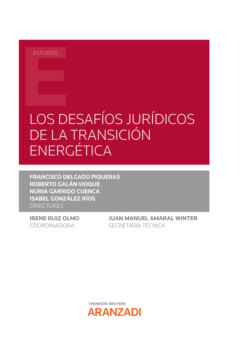Читать книгу Los Desafíos Jurídicos de la Transición Energética - Isabel González Ríos - Страница 20
На сайте Литреса книга снята с продажи.
I. INTRODUCTION
ОглавлениеThe Republic of Poland, like other Member States of the European Union and other countries around the world, is currently facing numerous economic and developmental challenges, compounded by the still ongoing COVID-19 pandemic. Unfortunately, the developmental problems and challenges identified so far in Poland have been overlaid by the direct effects of the pandemic, which has brought serious losses, new threats, and intensification of the existing problems in the functioning of the economy. Also in its key areas, such as the energy sector, which determines the level of social life and development prospects for the whole country, real problems are being noticed. As it seems, in comparison to other Member States, the reconstruction of the Polish economy and return to stable economic growth may be particularly difficult due to the structure of the domestic energy sector. It is well known that rapid and dynamic economic growth depends on access to cost-effective energy sources, energy that is an essential element of many industrial and manufacturing processes. The objectives currently set, related to rebuilding and creating socio-economic resilience of the country after the lockdowns and the crisis caused by the COVID-19 virus pandemic, including the implementation of structural economic reforms and investments should undoubtedly be linked to the energy transformation of the whole economy. This transformation, due to international commitments, EU multi-year plans, as well as climate changes easily perceived by most of the population, needs to be continued.
This paper aims to identify and discuss the current situation in the energy sector in the Republic of Poland, especially in view of the existing legal regime and the need to implement the new EU legislation and new targets related to renewable energy sources. Moreover, the Polish perspective and solutions related to the energy transformation will be presented. The Polish path, due to the continuous reliance of the economy on fossil fuels, social concerns related to the transition away from hard coal and lignite, but also years of negligence, can undoubtedly be an interesting and challenging one. However, an appropriately prepared legal framework, in connection with a reasonable use of aid and investment funds from the European Union, should make this path at least to some extent a little easier.
